
and Chios over the government's handling of migrants arriving from Turkey.
Migrant numbers are rising, and conditions at the overcrowded camps on the islands are dismal.
At Moria, the largest camp on the island of Lesbos, there are more than 19,000 asylum seekers living at a facility with a capacity for 2,840.
Banners on the Lesbos municipal theatre proclaim: "We want our islands back".
Another reads: "No more prisons for human souls in the North Aegean."
North Aegean Regional Governor Kostas Moutzouris said on Wednesday he was "annoyed" that Greek islands had been "turned into places of concentration and detention" for thousands of people around the world.
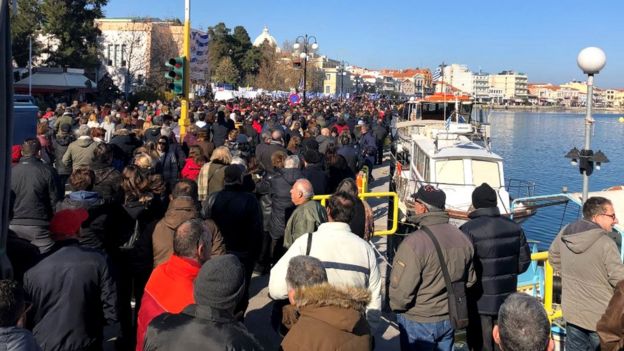
By midday (10:00 GMT) about 3,000 protesters had gathered in Mytilene, Lesbos's capital, while another 1,500 demonstrators were in the centre of Samos town.
Shops, pharmacies and petrol stations say they will be closed, along with some clinics and lawyers offices. Taxi and bus drivers say they will join the strike.
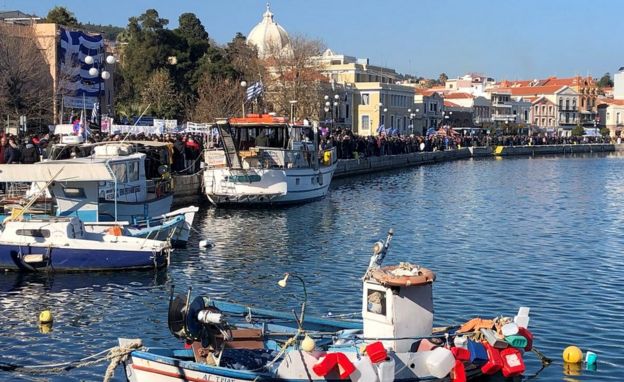
Many locals here feel abandoned. On the island of Samos, Giorgos, a bartender who works in the tourist trade, told the BBC he was angry with the government.
"Here it's like a prison," he said. "The migrants aren't allowed to leave the island. They aren't free to go where they like."
Migration and Asylum Minister Notis Mitarakis, who visited Samos and Lesbos at the weekend, highlighted two ways to curb migration to the islands: "First, more efficient guarding of our borders and, second, the immediate return of those who don't deserve international protection," he said.
In Samos town, the refugee camp is in the olive groves on a hill just a few minutes' walk from the town centre.
It is common to see migrants hanging around on benches at the seafront.
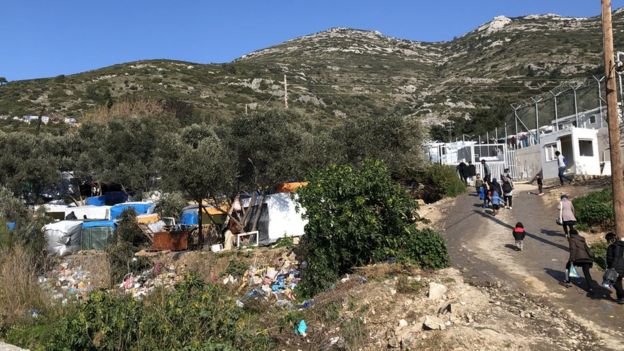
"In Samos town there are more of them than us," Giorgos said. "They are different. They change our culture." He is worried that this has a negative effect on tourism.
"Samos town was full of tourists before. Many people I know, from England too, they say they won't come to the town."
Greece's Ministry for Citizen Protection says there are currently around 7,200 migrants living in the camp on Samos, which was designed for just 700.
The local population of Samos town is around 6,500.
Overcrowding in Greek camps
Migrants and refugees on Aegean islands
Feelings are running high. In December, the mayor of East Samos, Giorgos Stantzos, was caught on video shouting and swearing as he chased migrants away from the town's main square.
The mayor was accused of racism. He says he was trying to stop some migrants from disrupting a Christmas event.
Mr Stantzos is a diver and volunteer rescue worker, who helped pull asylum seekers from the sea, but these days he is pushing for migrants to leave Samos.
"I saved people in the past and if necessary, I would do it again now," he told me.
"When human lives are in danger, we have to protect them."
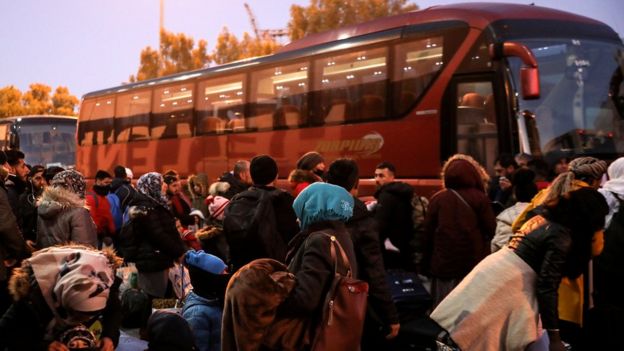 REUTERS
REUTERS
"But we want the refugees and the immigrants to go to another place, to Greece or other parts of the EU," he told me. "More people are coming and just staying on our islands. They live in tents in inhuman conditions."
He said it would be "a nightmare" if that continued.
None of the migrants I spoke to were happy with the conditions at the camp in Samos.
Hisham, from Gaza, says it is a "sick environment", adding: "It's a very bad situation. I am here three months and nothing has happened with me. I hope to leave this island as soon as I can."
 GETTY IMAGES
GETTY IMAGES
Martha, from Ghana, said she was first given a bed in a container where she was the only woman. "I've moved to a tent and it is very cold."
She says Greek people move away when they see her in the street. "They don't want the refugees here. It's not good," she said.
"I want to move from Samos. I don't like Samos at all. I want to go to the city. Maybe there it will be different."

You might also be interested in:
- The man offering heat to migrants rejected by Europe
- EU warns of 'lost generation' of young refugees
- Refugees fleeing Syria: 'We're not trouble'
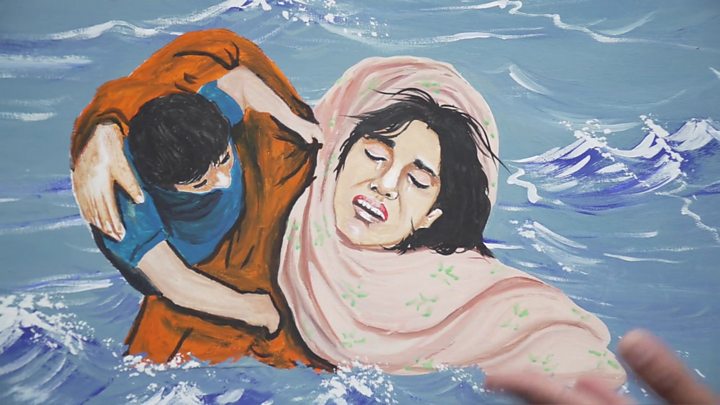
0 Comments